Search Results
Showing results 1 to 11 of 11
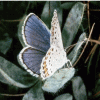
Lupine and Butterflies
Source Institutions
In this two-part activity about the connection between the lupine plant and butterflies, learners first read "Miss Rumphius," a storybook about lupine by Barbara Cooney.
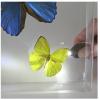
Exploring Structures: Butterfly
Source Institutions
In this activity, learners investigate how some butterfly wings get their color.
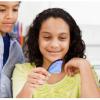
Morphing Butterfly
Source Institutions
In this activity, learners explore how nanosized structures can create brilliant color.
Butterflies in Space
Source Institutions
The Butterflies in Space Teacher's Guide uses "life in space" to encourage learners to conduct their own open-ended scientific investigations.
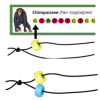
Sequence Bracelets
Source Institutions
In this craft-based activity, learners make DNA sequence bracelets that carry the code of an organism such as a human, trout, chimpanzee or butterfly.

Pollinator Bath
Source Institutions
In this activity, learners will build a design and build a place for pollinators to drink from.
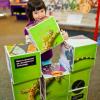
Build a Giant Puzzle!
Source Institutions
In this activity, learners assemble large cubes to make nano-related images. Learners discover how different objects are related to nanoscience and nanotechnology.
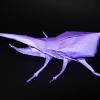
My Insect
Source Institutions
In this activity, learners use information gathered from a variety of sources to design and make their own insect.
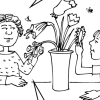
Flower Engineers
Source Institutions
This activity (on pages 24-29) combines science and art to introduce learners to how different animal pollinators spread pollen from one plant to another, and how certain shapes, colors, and smells of
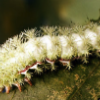
Hungry as a Caterpillar
Source Institutions
In this indoor and outdoor activity, learners discover that insects grow and develop as do all living things, going through a process known as complete metamorphosis.
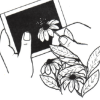
Flower Powder
Source Institutions
In this outdoor activity, learners use artificial bees and paper models of flowers to find out how bees transfer pollen from one flower to another.
